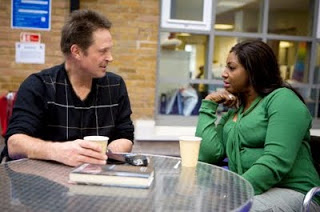I love these words from Harvey Mackay, one of my favorite business leaders:
"A mediocre person tells. A good person explains. A superior person demonstrates. A great person inspires others to see for themselves."
Too often, well-intentioned people give advice and think they're truly helping another person. I've certainly been guilty of doing that. And I have to admit that "mediocre" accurately describes the results I got from that approach.
When we were children, most of us didn't like to be told what to do. And as adults, we often interpret such an approach as condescending or corrective. It shuts down communication and prevents further learning by either person.
Today I'm eager to help "others to see for themselves." I believe the key to achieving that goal is asking questions. Not simple "yes" or "no" questions either. Questions that causes others to reflect on their situation and discover answers for themselves.
Next time someone is discussing a problem or challenge with you, resist the urge to tell them what to do. Instead, listen carefully to what they're saying and then ask questions to help them explore their feelings...their needs...and the possibilities. They will feel understood at the end of the conversation and will be more likely to act upon the insights they've discovered for themselves.
Too often, well-intentioned people give advice and think they're truly helping another person. I've certainly been guilty of doing that. And I have to admit that "mediocre" accurately describes the results I got from that approach.
When we were children, most of us didn't like to be told what to do. And as adults, we often interpret such an approach as condescending or corrective. It shuts down communication and prevents further learning by either person.
Today I'm eager to help "others to see for themselves." I believe the key to achieving that goal is asking questions. Not simple "yes" or "no" questions either. Questions that causes others to reflect on their situation and discover answers for themselves.
Next time someone is discussing a problem or challenge with you, resist the urge to tell them what to do. Instead, listen carefully to what they're saying and then ask questions to help them explore their feelings...their needs...and the possibilities. They will feel understood at the end of the conversation and will be more likely to act upon the insights they've discovered for themselves.






True. Most people think they are being good and kind when they give advice. But giving advice involves assuming others can't work things out for themselves. This implicit message feels wrong to the recipient. And in most cases, we simply don't know enough about the situation to give really useful advice. But people don't think about these things...
ReplyDeleteThis is a wonderful article. We can't be reminded often enough of the concepts you've outlined. Thanks.
ReplyDelete